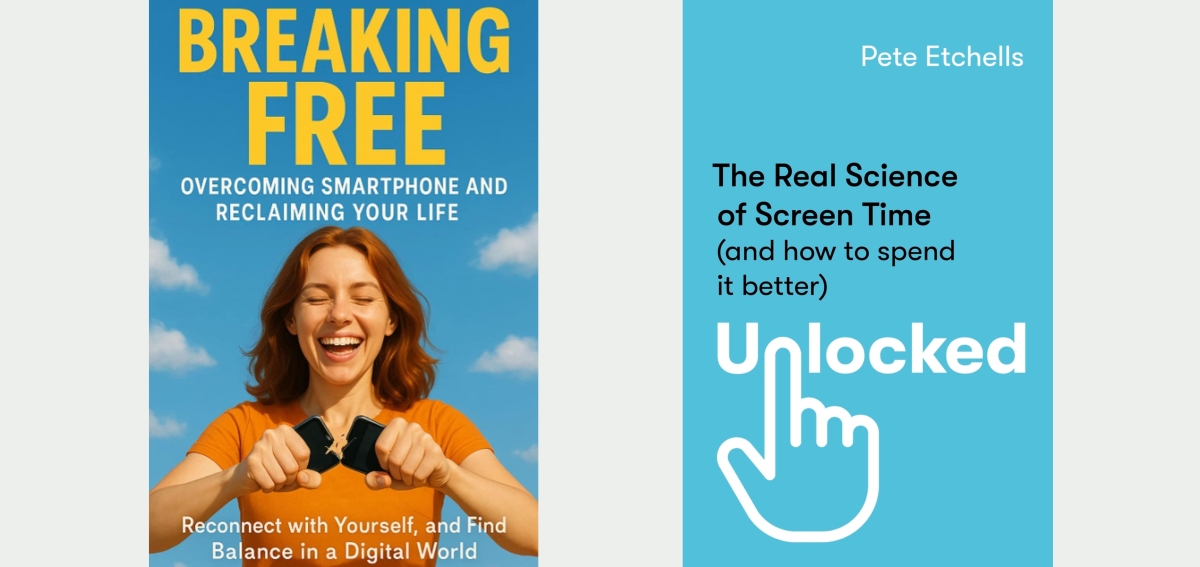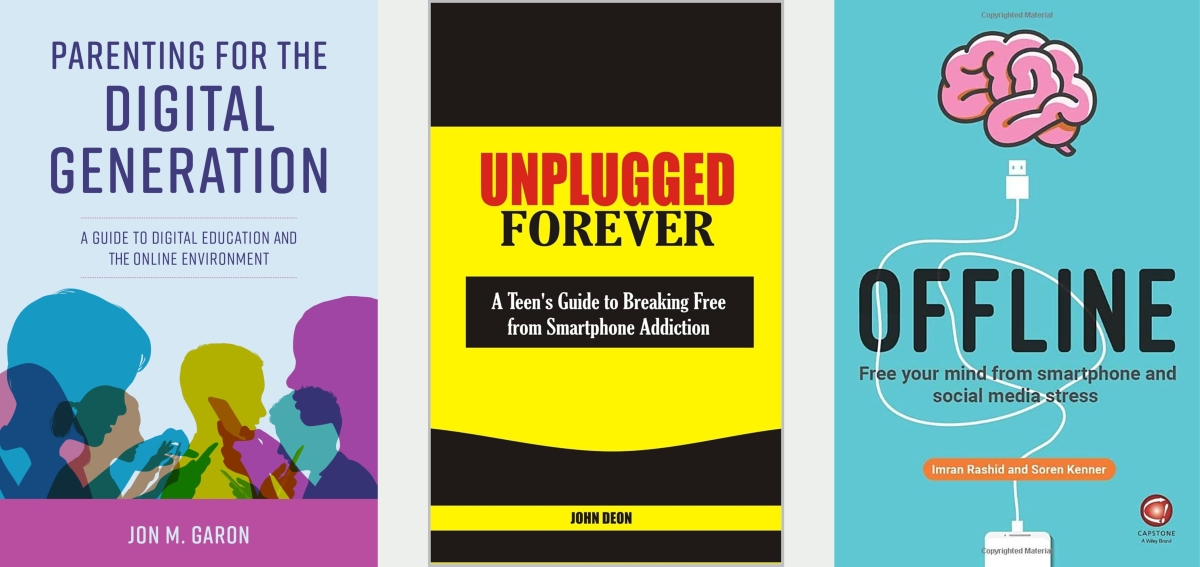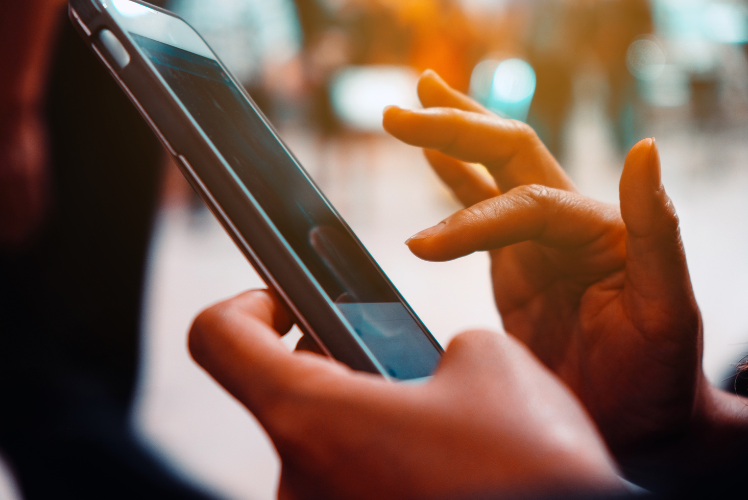
How do devices affect young people’s wellbeing? What’s the right age for a child to get their first smartphone? How much screen time is too much - and how can parents set healthy boundaries?
These are important questions that are provoking thoughtful debate right now, both in Guernsey and further afield. While opinions vary, one thing is clear: many parents are looking for reliable information and advice.
That's why we've put together this list of 14 books to help families navigate the smartphone era. The collection includes acclaimed titles from psychologists, parenting experts, and even teenagers themselves - each giving a frank assessment of the challenges, along with guidance to help get the balance right.
They're all available to borrow for free from the Library. Spot something you'd like to read? Click the title to find out more and reserve a copy.
---------------------------
1. The Anxious Generation - Jonathan Haidt
From the blurb: After more than a decade of stability or improvement, the mental health of adolescents in many countries around the world deteriorated suddenly in the early 2010s. Why have rates of depression, anxiety, self-harm and suicide risen so sharply, more than doubling in many cases?
Social Psychologist Jonathan Haidt argues that the decline of free-play in childhood and the rise of smartphone usage among adolescents are the twin sources of increased mental distress among teenagers. Haidt delves into the latest psychological and biological research to show how, between 2010 and 2015, childhood and adolescence got rewired.
2. Generation Zombie: How Devices are Damaging Our Children - Charlotte Armitage
From the blurb: Many theories that form the bedrock of good parenting were created decades before devices even existed - they don't consider the significant impact on a child's psychological and physical development. The landscape of the early years has changed so quickly, yet parents and caregivers do not have access to the evidence-based, practical advice they need to manage this invasion of screens. They can see their children become addicted to devices, but don't know what to do. Generation Zombie will fill this knowledge gap.
Through her clinical work as a psychotherapist, work with schools and as a duty of care psychologist, Dr Charlotte Armitage has witnessed the terrifying impact of screen time on her clients and their families. However, unlike other addictions, the harmful consequences of devices are not widely recognised. With the vital insights in her book - including practical tips and engaging case studies - her mission is hopeful and empowering; to enable parents to make a positive change. Away from devices, you will be amazed how quickly you notice children's behaviour change.
3. Can Your Teen Survive – and Thrive – Without a Smartphone? - Melanie Hempe
From the blurb: Parenting in the digital age is no easy task. Yet the answers may be closer and simpler than you think. An experienced nurse and mother of four, Melanie Hempe offers every parent the real solution to the smartphone dilemma. With scientific research on her side, Hempe offers a fresh perspective and innovative approach to the addictive role smartphones play in the lives of our children.
Drawing on her own family's digital struggles and her work with hundreds of families over the last seven years, Hempe’s advice empowers parents to go far beyond defining the problem to experiencing life-changing results. You’ll gain the confidence and tools to rethink your family's screen use, reclaim your kids, and reconnect your family.
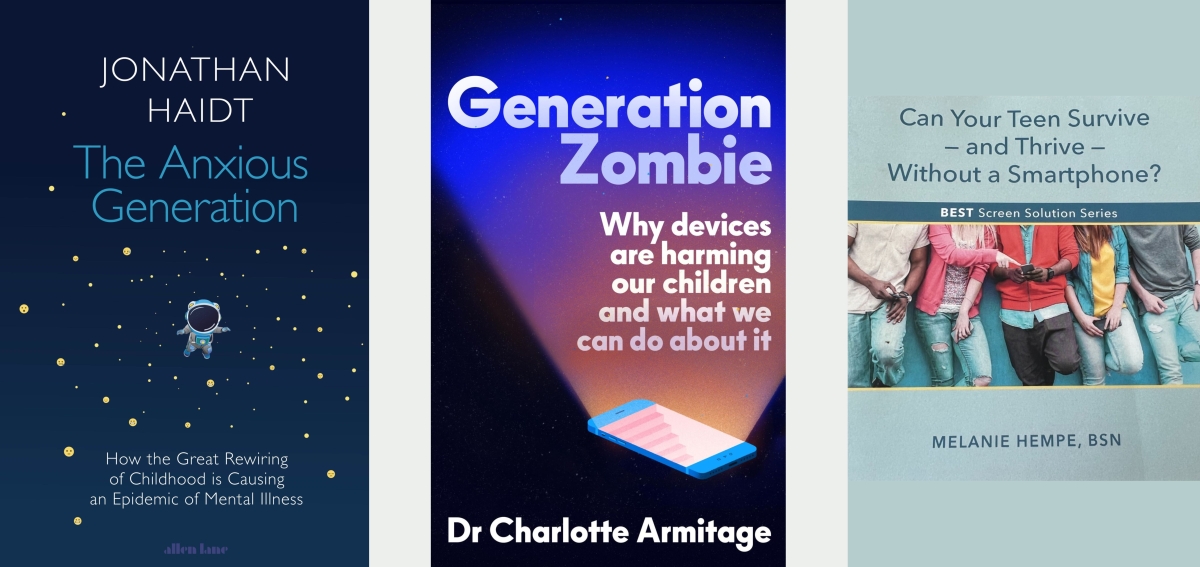 4. Parenting for the Digital Generation - Jon M Garon
4. Parenting for the Digital Generation - Jon M Garon
From the blurb: A practical handbook for parents, grandparents, teachers, and counselors who want to understand both the opportunities and the threats that exist for the generation of digital natives who are more familiar with a smartphone than they are with a paper book. This book provides straightforward, jargon-free information regarding the online environment and the experience in which children and young adults engage both inside and outside the classroom.
5. Unplugged Forever by John Deon
From the blurb: Are you weary of feeling glued to your smartphone and losing out on the beauty of life right in front of you? Do you find yourself idly browsing around social media, unable to pull yourself out of the digital vortex? It's time to let go of smartphone addiction and regain your time, attention, and sanity.
In Unplugged Forever you'll embark on a transforming journey toward digital wellness and personal liberty. Through fascinating tales, practical exercises, and tried-and-true tactics, you'll learn how to identify the signs of smartphone addiction, examine your own habits, and create a healthy relationship with technology.
6. Offline - Imran Rashid
From the blurb: Authors Imran Rashid and Soren Kenner have sparked an international debate by revealing the “mind hacks” Facebook, Apple, Google, and Instagram use to get you and your children hooked on their products.
In Offline, they deliver an eye-opening research-based journey into the world of tech giants, smartphones, social engineering, and subconscious manipulation. This provocative work shows you how digital devices change individuals and communities for better and worse.
A must-read if you or your kids use smartphones or tablets and spend time browsing social networks, playing online games, or even just browsing sites with news and entertainment. Learn how to recognise ‘mind hacks’ and avoid the potentially disastrous side-effects of digital pollution. Unplug from the matrix. Learn digital habits that work for you.
7. Stolen Focus - Johann Hari
From the blurb: Why have we lost our ability to focus? What are the causes? And most importantly, how do we get it back? For Stolen Focus, internationally bestselling author Johann Hari went on a three-year journey to uncover the reasons why our teenagers now focus on one task for only 65 seconds, and why office workers on average manage only three minutes.
He interviewed the leading experts in the world on attention, and learned that everything we think about this subject is wrong. We think our inability to focus is a personal failing - a flaw in each one of us. It's not. This has been done to all of us by powerful external forces. Our focus has been stolen. Johann discovered there are twelve deep causes of this crisis, all of which have robbed some of our attention.
He shows us how in a thrilling journey that ranges from Silicon Valley dissidents, to a favela in Rio where attention vanished, to an office in New Zealand that found a remarkable way to restore our attention. Crucially, he learned how we can get our focus back - if we're determined to fight for it.
8. Smartphone Nation – Dr Kaitlyn Regehr
From the blurb: Smartphone Nation will transform the way you – and your children – understand your devices and how they affect you. In this practical, agenda-setting book, Dr Kaitlyn Regehr – one of the UK's leading experts on digital literacy – sets out how you can keep the advantages of the internet whilst identifying often hidden dangers and stepping away when you’re over-reliant.
This life-changing guide provides practical tips, clear takeaways, and tested strategies to empower you to take back control of your digital life. Covering misogyny, pornography, body image, advertising, violence and more, Dr. Kaitlyn Regehr explains echo chambers, the attention economy, and why we are still so unprotected when it comes to digital media.
You’ll learn how to game your algorithm, how to limit targeted advertising, how to catch misinformation and how to improve your digital nutrition.
9. Digital Minimalism - Cal Newport
From the blurb: Do you find yourself endlessly scrolling through social media or the news while your anxiety rises? Are you feeling frazzled after a long day of endless video calls? In this timely book, professor Cal Newport shows us how to pare back digital distractions and live a more meaningful life with less technology. By following a 'digital declutter' process, you'll learn to:
- Rethink your relationship with social media
- Prioritise 'high bandwidth' conversations over low quality text chains
- Rediscover the pleasures of the offline world
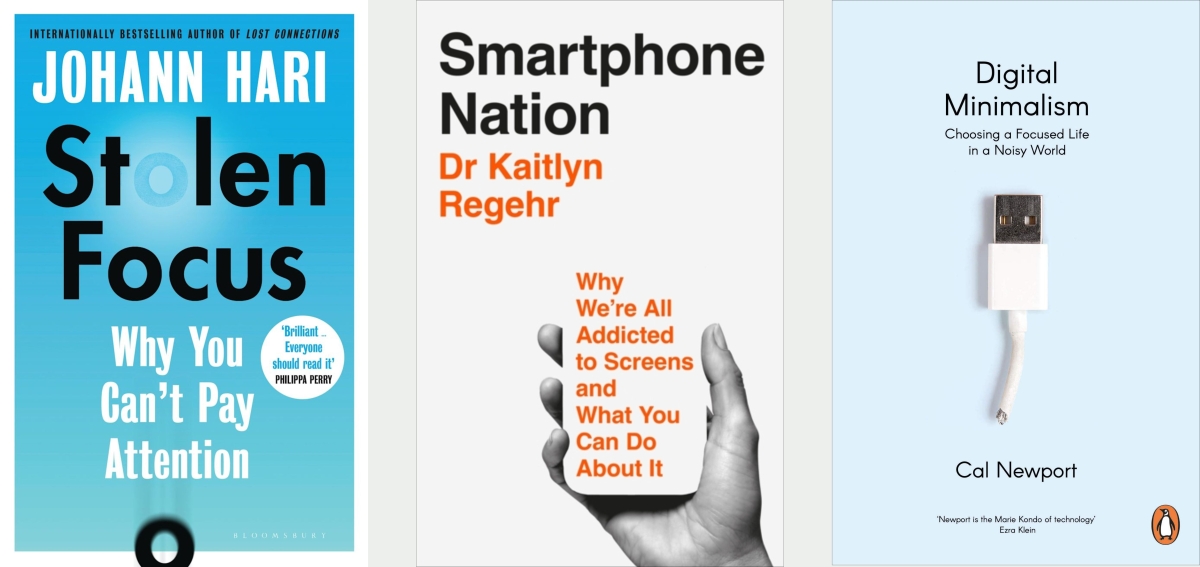
10. Ten Arguments for Deleting Your Social Media Accounts Right Now - Jaron Lanier
From the blurb: Social media is supposed to bring us together - but it is tearing us apart. The evidence suggests it's making us sadder, angrier, less empathetic, more fearful, more isolated, and more tribal.
Jaron Lanier is the world-famous Silicon Valley scientist-pioneer who first alerted us to the dangers of social media. In this witty and urgent manifesto, he explains why its toxic effects are at the heart of its design, and, in ten simple arguments, why liberating yourself from its hold will transform your life and the world for the better.
11. Dear Digital, We Need to Talk - Kirsty Goodwin
From the blurb: Suffering with toxic tech-habits? Zoom fatigue? Digital dementia? Burnout? Many of us have adopted unhealthy and unsustainable digital habits that are not only putting a dent in our performance and productivity, they are also seriously impacting both our physical health and mental wellbeing. But it's no longer realistic to simply throw away our laptops or cancel our Netflix subscriptions. Whether we love it or loathe it, technology is here to stay.
Dear Digital, We Need to Talk provides realistic, research-based ways to cultivate healthy and helpful digital habits that work with our brains and bodies, rather than against them. It presents a menu of practical micro-habits designed to bolster your productivity and support your wellbeing in our always-on, digitally distracted world.
12. How to Break Up with Your Phone - Catherine Price
From the blurb: Is your phone the first thing you reach for when you wake up? And the last thing you see before you sleep? Do you find the hours slip away as you idly scroll through your social media timeline? In short, are you addicted to your phone? If so, How to Break Up with Your Phone is here to help.
This smart, practical and useful plan will help you conquer your mobile phone addiction in just 30 days - and take back your life in the process.
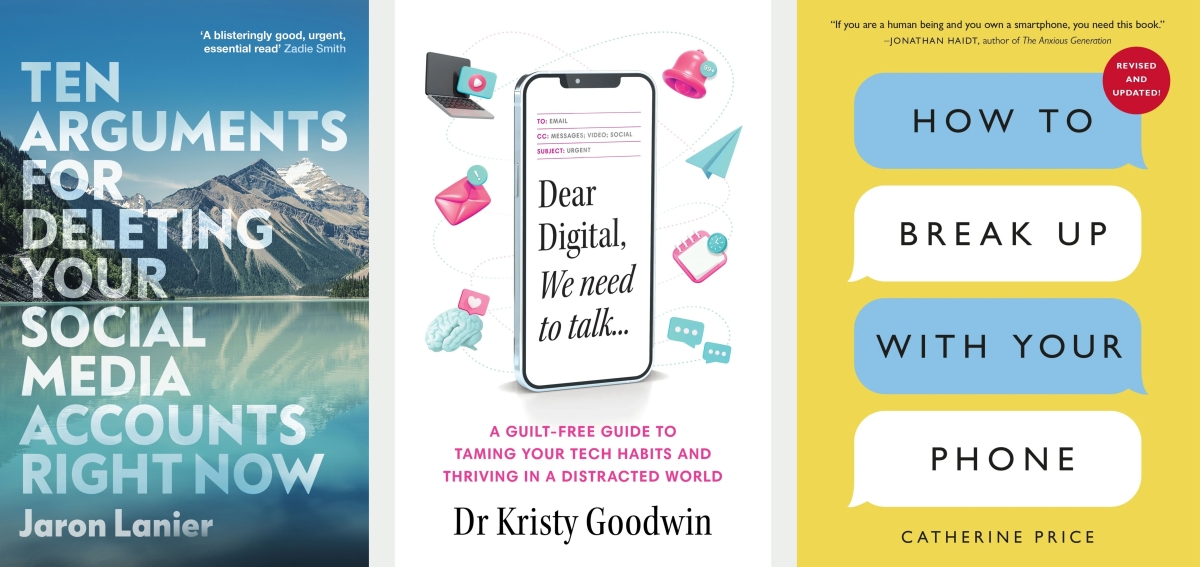 13. Breaking Free - Roland G Duke
13. Breaking Free - Roland G Duke
From the blurb: The average person checks their phone over 150 times a day, spending hours scrolling through social media, answering emails, or simply searching for ways to pass time. What began as innocent habits have now become compulsions-interrupting work, interrupting meals, interrupting quality time with loved ones. In fact, for many, the smartphone has shifted from being a tool for productivity to becoming a source of stress, anxiety, and mental overload.
Breaking Free is here to help you step away from that digital overload and regain control. It's for those who find themselves reaching for their phone out of habit, for those whose screen time is eating away at their productivity and wellbeing, and for those who feel the weight of constant connectivity weighing them down. If you've ever felt overwhelmed, distracted, or even isolated by your smartphone, you are not alone - and this book will guide you through the process of breaking free from its grip.
14. Unlocked: The Real Science of Screen Time and How to Spend it Better – Pete Etchells
From the blurb: Professor Pete Etchells studies the way we use screens, and how they can affect us. In Unlocked, he delves into the real science behind the panic about our alleged device addiction and withering attention spans. Armed with the latest research, he reveals how little we have to fear, and the great deal we have to gain, by establishing a more positive relationship with our screens. That begins with asking ourselves some essential questions about how we use them.
Instead of clamouring for us to ditch our devices (before guiltily returning to the same old habits), Unlocked is a sustainable, realistic and vital guide to transforming our connection with technology.
For more reading inspiration, browse our book list blogs here.
